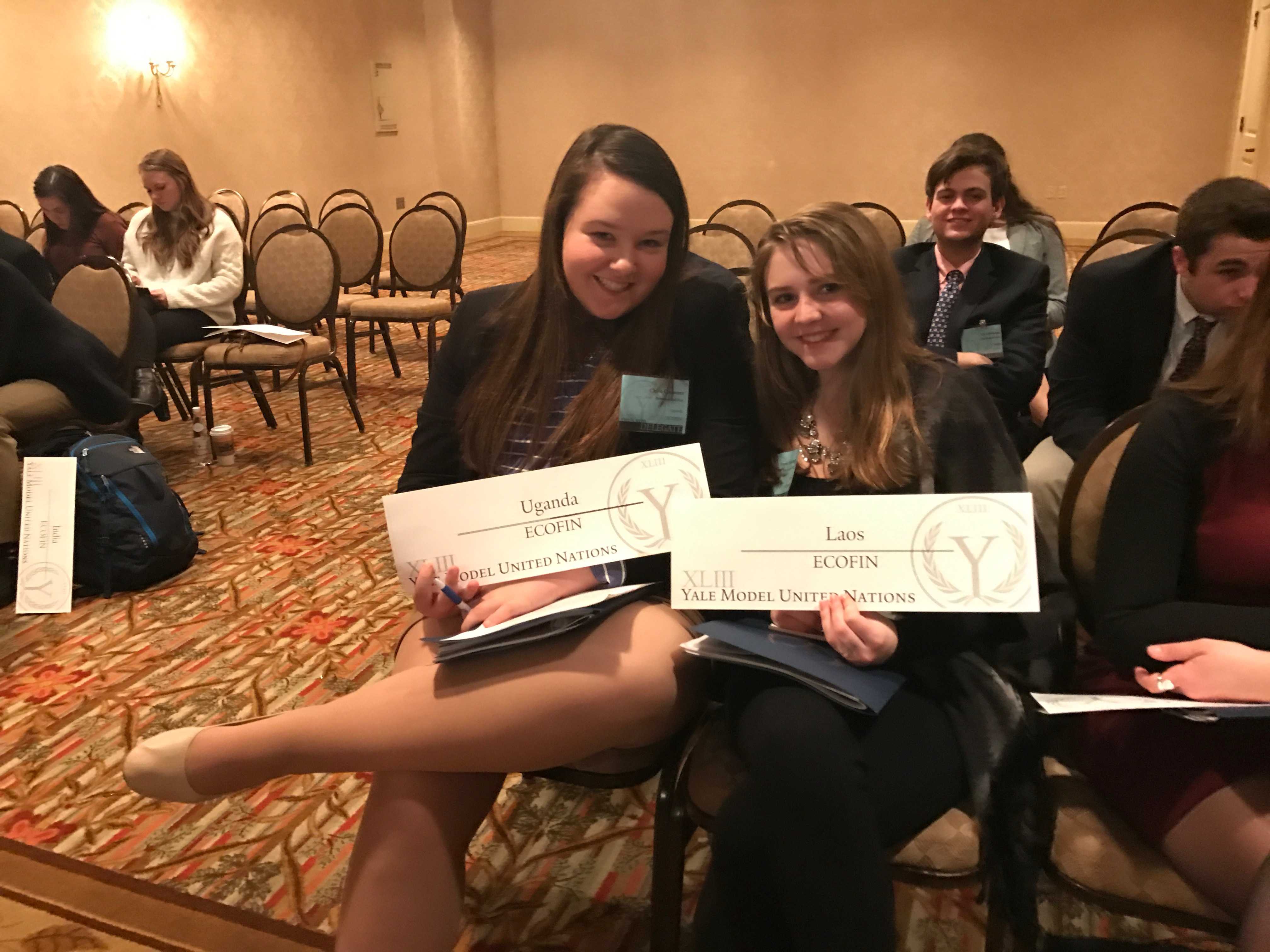
For the first time in recent memory, this year’s 23-member Model United Nations club was assigned just one country, Ghana, to represent at the Yale University conference in January.
Last year, students represented Laos, Uganda, and Argentina. In 2015, students were assigned Liberia and the Philippines.
Yale’s Under Secretary-General of Delegations sent an email to club advisor David Cutler, outlining possible reasons for the change.
“Country assignments are determined by a variety of factors, including Model United Nations experience, prior delegate conduct at Yale Model United Nations conferences, number of delegates requested, and country preferences,” wrote Min Byung Chae.
Yale does not provide further explanation on why assignments fall where they do, but Co-Lead Delegate Jack Donnelly ’18, who attended last year’s conference, said that he wouldn’t be surprised if a lack of delegate preparedness played a factor.
“This is nobody’s fault,” Donnelly said. “It’s merely the reality of offering Model United Nations as a club, which meets infrequently.”
Donnelly said that he finds “tremendous value” in the club, which, for the fourth consecutive year, has over 22 students enrolled in grades 9-12.
“Given how popular the club is year after year, I think it would beneficial to have an elective block centered around the United Nations,” Donnelly said. “Perhaps a component could be preparing for the Yale conference.”
Associate Head for Academics Joe Iuliano said that a first semester course that supports Model UN students could certainly help delegates be better prepared for their participation at the Yale event.
“If the course provided a look at IGO’s in addition to the UN, such as the EU, ASEAN, AU, NATO, that would really be advantageous for students in understanding how these organizations operate and interact in world politics, which is a very complex,” Iuliano said.
Cutler agrees that without more frequent meeting times, it’s challenging for students to engage with peers who participate in “high-octane” Model United Nations clubs, which meet on a daily or weekly basis.
“That’s not possible for us,” said Cutler, noting that students here must participate in after school sports or fitness activities. “Our community values students who try their hand at many different things, and I wouldn’t want students focusing exclusively on Model United Nations. I think that would go against our mission.”
While Model United Nations met eight or nine times last fall, according to Cutler, the club has met five times this year, mostly due to confusion surrounding the Wednesday activities block, which fell to the Upper School Senate for the first two quarters.
Now, clubs are again operating under Dean of Students Paul Murray, who, like in past years, has organized alternating blocks for participation in two teacher-led activities.
“This isn’t anybody’s fault,” Murray said. “We tried something new and a change needed to be made. There is no blame here.”
In a Nov. 15 Gator story, Senate President Stone McLaren ‘18 agreed with the administration’s decision to intercede.
“People weren’t doing what they were supposed to be doing,” McLaren said. “Communication wasn’t working in Senate, and people weren’t following through with what they had promised. It was a lot of saying and not a lot of doing.”
To give Model United Nations an additional meeting time, last week, Murray kept the “A-Week” activities block. In addition, Cutler has also been offering added support for new club members.
Still, according to Cutler, the playing field is not level.
“Many schools, especially public schools, also offer Model United Nations as an elective class,” said Cutler. “These students are cutthroat about earning accolades to boost their grades. But my goal isn’t to make the club so competitive. Rather, I really want students to benefit from a terrific learning experience that brings young people from around the globe.”
Students do a “remarkable” job of embracing the School’s mission statement, Cutler also says, which encourages individuals to take risks and try new things, without focusing on just one endeavor.
“I wouldn’t want this any other way,” said Cutler. “We may not bring home any medals from Yale this year, but I’m okay with that. That’s not why we attend each year.”
Like in previous years, several delegates will also represent other nations and positions, but on smaller committees. For example, individuals will represent Latvia for the North Atlantic Treaty Organization, and Brunei for the Association of Southeast Asian Nations.
Still, with limited country assignments, club members can’t pair up to attend the same session meetings.
“This was disappointing to learn,” said Sophie Lapat ’18. “The larger committees, which can have over 100 students, can be overwhelming. Last year, it was comforting to see a familiar face in the crowd.”
Students will leave for Yale Thursday, Jan. 18, after Upper School lunch. They will return that Sunday.






















































